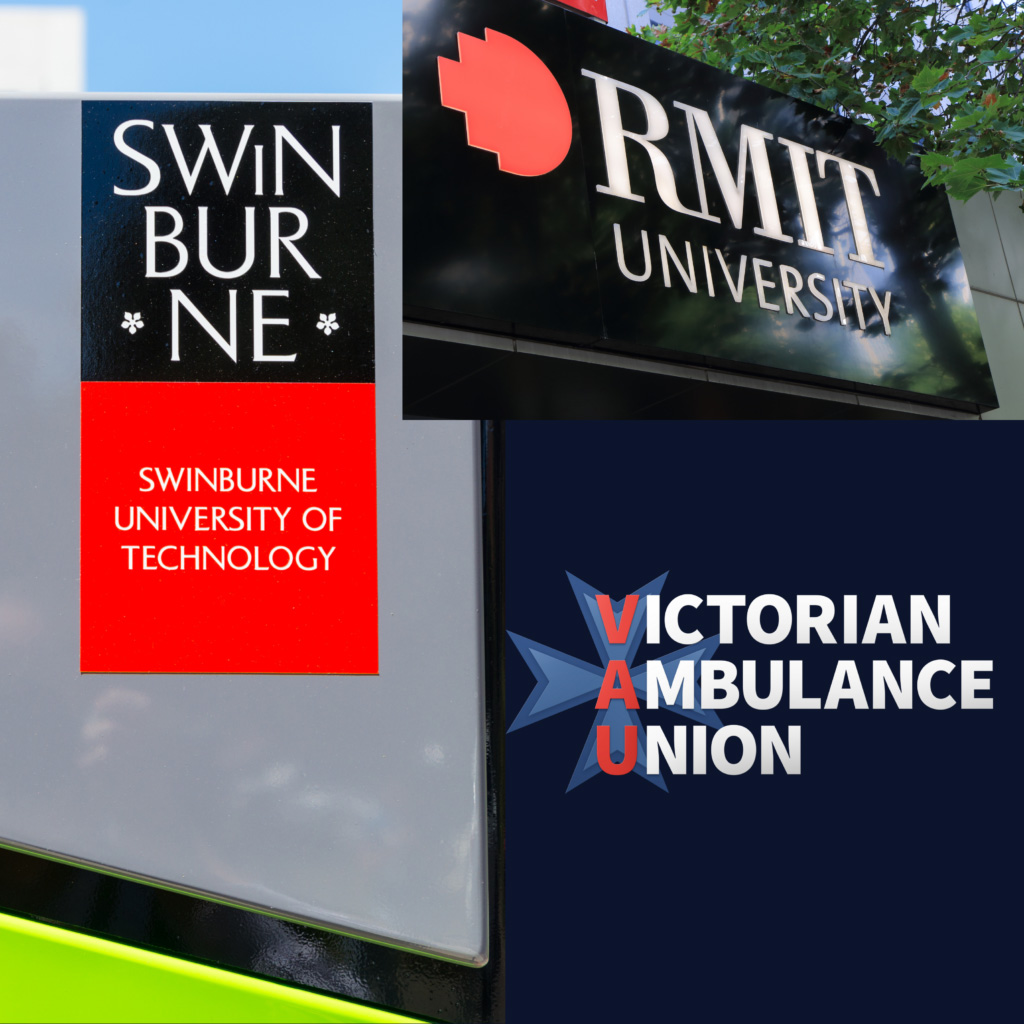Research
5th December, 2020
VAU Swinburne RMIT survey results Vol. 1 and 2
As members will be aware the Victorian Ambulance Union Incorporated (VAU) entered into a partnership with Swinburne and RMIT Universities in 2020 in order to conduct research into the ambulance workforce.
A key area of concern for the VAU are issues like respect, discrimination, workload, bullying, sexual harassment, and discrimination across the ambulance industry. These are issues that cause significant trauma to our members and are often the cause of a large amount of the work that our office deals with every day.
To begin addressing these issues we need good quality information and data, which is why we were so pleased to be able to build this relationship with RMIT and Swinburne Universities.
Volume 1 of the report was released on 5 December 2020.
We are pleased to present the Findings from the Survey on Workplace Climate and Well-being of Victorian Ambulance Workers (Vol. 1 and 2). Each volume deals with the following issues:
- Workplace Wellbeing
- Psychological Safety
- Engagement
- Burnout
- Resilience
- Intention to Leave Profession
- Organisational Support at Work
- Industrial Relations Climate
- Mental Health and Wellbeing

The VAU encourages all members to read both reports. It is important to understand that the issues reported recently in the media are not just the experiences of a small number of members but a deeply engrained culture that effects the entire ambulance industry.
The VAU would like to pass on our sincere thanks to Professor Peter Holland, Dr. Julian Vieceli and Dr. Lara Thynne from Swinburne University and Dr. Tse Leng Tham from RMIT University for their hard work in conducting this research. There is clearly further research that needs to be completed following the information revealed in this report and the VAU look forward to further collaboration with the Swinburne and RMIT team to work through these matters.
The VAU would also like to sincerely like to thank our members who took the time to complete this survey. It assists us greatly in bringing about cultural change for our members. We are all part of the ambulance culture and we all have a part to play in improving it. This includes members, managers, senior managers, and even the union leadership. The publication of this report is an important step that will assist in continuing the conversation with the view to ensuring practical change within the industry.